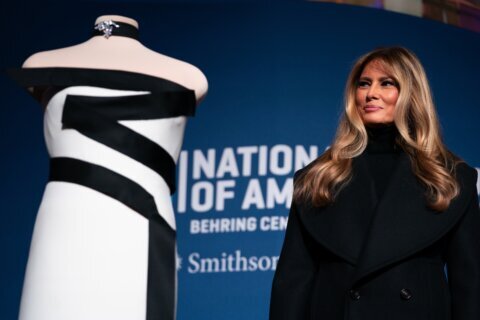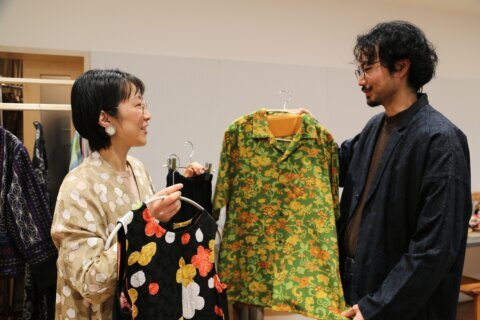On Friday, Tiffany & Co debuted and quickly sold out a limited collection of 250 custom jewel-encrusted pendants for holders of CryptoPunks, a popular early non-fungible token collection.
CryptoPunks was launched in 2017 and consists of 10,000 unique 8-bit-style generated characters stored on the Ethereum blockchain. The collection is “essentially the cave paintings of Web3 art,” said Noah Davis, CryptoPunks’ new brand lead and former head of digital sales at Christie’s, in an interview with CNN. “We’re talking about the earliest successful, and enduringly so, community-based NFT project.”
Tiffany sold 250 “NFTiffs,” digital passes which can be minted and redeemed for custom-designed CryptoPunks pendants and a matching NFT art piece, according to their website and Twitter. To buy an NFT, customers had to already own a CryptoPunk of their own.
For each NFTiff purchased, Tiffany designers will create a custom pendant based on the buyer’s CryptoPunk. Each CryptoPunk has a unique combination of 87 attributes like a medical mask, a hat, or an earring, and 159 colors which will be reflected in the pendant. Each piece will be rendered in 18-karat gold and feature at least 30 gemstones and/or diamonds, Tiffany said.
Each NFTiff, which provides access to a pendant and a matching NFT digital rendering, costs a pretty penny: 30 ETH, or around $50,000.
Davis, CryptoPunks’ brand lead, told CNN the Tiffany pendants are just one iteration of possible projects tied to the NFTs.
“Owning an NFT means that you own an entry on the blockchain,” Davis explained. “It’s an indelible entry that can never be modified fraudulently, cannot be faked, cannot be copied, cannot be destroyed. It’s there forever. Owning an NFT is a really powerful thing for the digital era.”
In March, Yuga Labs, the parent company for Bored Ape Yacht Club, another famous early NFT project, acquired all intellectual property (IP) for CryptoPunks — and announced plans to grant all CryptoPunk holders commercial rights. It opened the door for projects like the Tiffany pendants. “Owning a token does not just mean this JPEG belongs to you,” Davis said. “It means you have certain rights with regards to what you can do with your CryptoPunk, what kind of IP you can build around it. There are extremely few restrictions.”
The Tiffany pendants “perfectly illustrate the license that’s coming out,” said Davis. “In this instance, owners of Cryptopunks are essentially commissioning Tiffany’s to create new IP out of their CryptoPunk, and that new IP is a pendant. You have to own the CryptoPunk in order to own the IP for the pendant.”
The project also represents the increasing enmeshment between luxury brands, cryptocurrency and NFTs. Historic auction houses like Christie’s and Sotheby’s have sold NFTs for jaw-dropping prices. And in May, Gucci announced plans to allow customers to pay for purchases with Bitcoin and several other cryptocurrencies.
“If we are heading into an era where the virtual world is going to become more important and essential to our lived experience, owning virtual goods is going to be that much more valuable,” said Davis. “To get an edge on that, for these luxury companies to enter the space now, when we are really still early, it’s brilliant and it makes perfect sense.”
Davis told CNN he hopes the opening of commercial rights for CryptoPunk holders leads to more unique community-driven projects, as NFT holders use their IP as the basis for their own ventures.
“The utility for CryptoPunks is the community,” he added. “There’s no need to add any more because the incredible utility that already exists is its community members. Finding ways to amplify those voices, provide more networking opportunities, and really just keep Punks punk — that’s the goal.”







